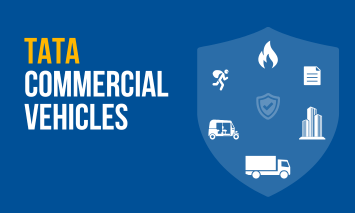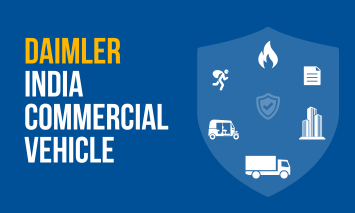Registration of Trademarks in India
Apr 10, 2025 • 3 Min Read
The Indian marketplace is a bustling hub of commerce, brimming with both established brands and entrepreneurs. In this dynamic landscape, carving out a distinct identity for your business is paramount. This is where trademarks come into play. Trademark registration is crucial for businesses in India, offering legal protection and exclusive rights over their brand identity. In a rapidly evolving commercial landscape, understanding the trademark registration process is essential for safeguarding intellectual property and maintaining market presence.
Why Trademark Registration Matters
In a 2022 survey conducted by the Federation of Indian Micro and Small & Medium Enterprises (MSME), a staggering 67% of respondents identified brand infringement as a major hurdle to business growth. Trademark registration acts as a potent weapon in this battle. It grants you exclusive rights to use the registered mark for your specified goods and services. This empowers you to take legal action against entities that attempt to imitate your brand, thereby safeguarding your brand reputation and preventing customer confusion.
For example, say ABC Electronics failed to register its brand name promptly. Counterfeit products flooded the market, damaging its reputation. After registering its trademark, ABC Electronics gained legal protection and bolstered consumer confidence, distinguishing its authentic products from imitations.
Furthermore, a registered trademark strengthens your brand's legitimacy and fosters trust among consumers. This translates into a significant competitive advantage, bolstering customer confidence and brand loyalty.
Step-by-Step Registration Process
The trademark registration process in India, overseen by the Controller General of Patents, Designs and Trademarks (CGPDTM), can be streamlined into six key steps:
- Trademark Search: Before embarking on the registration journey, it's crucial to conduct a thorough trademark search. This entails verifying the availability of your desired mark in the Indian Trademark Registry database to ensure it doesn't clash with existing trademarks. The CGPDTM website offers a user-friendly search tool for this purpose.
- Application Filing: Once you've ascertained the mark's availability, proceed with filing a trademark application. This application, typically Form TM-A, can be submitted electronically or physically at a Trademark Office. The application necessitates details like applicant information, the proposed trademark, and the class of goods or services it pertains to (classified according to the Nice Classification System).
- Formal Examination: Upon receiving your application, the Trademark Office conducts a formal examination to assess whether the mark meets the registrability criteria as outlined in the Trade Marks Act, 1999. This examination evaluates aspects like distinctiveness, likelihood of confusion with existing marks, and whether the mark is generic or deceptive.
- Publication and Opposition: If the examination is successful, the trademark is advertised in the Trade Marks Journal, inviting potential objections from third parties who may believe their rights are infringed upon. A four-month window is provided for filing oppositions.
- Registration or Refusal: If no opposition is registered within the stipulated timeframe, the mark proceeds towards registration. The CGPDTM issues a registration certificate, granting you exclusive ownership for a period of ten years. In case of opposition, a hearing is conducted to determine the validity of the claims.
- Renewal and Maintenance: Trademark registrations are valid for ten years, with the option for indefinite renewal through timely applications. To maintain the registration's validity, renewal fees must be paid at prescribed intervals.
Navigating Indian Trademark Laws
The Trade Marks Act, 1999, serves as the bedrock of trademark legislation in India. This act outlines the legalities associated with trademark registration, infringement, and enforcement mechanisms. It's advisable to consult with a qualified trademark attorney to ensure your application adheres to all legal stipulations and effectively safeguards your brand interests.
Here are some key aspects of Indian trademark law to be cognizant of:
- Distinctiveness: The mark must be inherently distinctive and capable of identifying your brand. Generic terms or descriptive surnames generally face rejection.
- Deceptive Marks: Marks that are likely to deceive consumers regarding the source or quality of goods/services are not registrable.
- Prior Use: Established rights through prior use of a mark can trump a subsequent registration application.
Benefits of Trademark Registration
The advantages of trademark registration in India are manifold:
- Exclusive Rights: Registration grants you exclusive ownership of the trademark for your specified class of goods/services, empowering you to take legal action against infringers who misuse your brand. This fosters a fair marketplace and discourages imitation.
- Brand Protection: A registered trademark serves as a shield against counterfeiting and brand dilution, safeguarding the integrity and value of your brand.
- Enhanced Brand Value: Trademark registration bolsters your brand's credibility and professional image. This can be particularly advantageous when attracting investors, forging partnerships, or exploring international expansion.
- Global Recognition: A registered trademark in India can pave the way for international trademark registration, facilitating brand protection in overseas markets.
- Evidentiary Strength: In the event of a legal dispute, a registered trademark serves as concrete evidence of your brand ownership, strengthening your position in court.
Common Pitfalls to Avoid
While the trademark registration process is fairly straightforward, there are potential pitfalls to be wary of:
- Insufficient Trademark Search: Skipping a thorough trademark search can lead to inadvertent infringement on existing trademarks, resulting in application rejection or even legal complications down the line.
- Generic or Descriptive Marks: Choosing a generic term or a merely descriptive name for your trademark can hinder registration. Strong trademarks are inherently distinctive and set your brand apart.
- Improper Classification: Misclassifying your goods or services in your application can limit the scope of your trademark protection. Consulting a professional can ensure accurate classification.
- Failure to Respond to Objections: If an opposition is filed against your trademark application, neglecting to respond within the stipulated timeframe can result in registration denial. Promptly addressing any objections is crucial.
- Neglecting Renewal: Overlooking trademark renewal can render your registration invalid, jeopardizing your brand protection. Setting up reminder systems can help ensure timely renewal.
Trademark Renewal and Maintenance
Trademark registrations in India are valid for ten years from the date of registration. The good news is that registrations can be indefinitely renewed through timely applications. To maintain an active registration, renewal fees must be paid at prescribed intervals before the expiration date. The CGPDTM sends reminders to trademark owners about upcoming renewal deadlines.
Conclusion
In the dynamic Indian marketplace, a registered trademark is an invaluable asset. It safeguards your brand identity, fosters consumer trust, and empowers you to navigate the competitive landscape with confidence. By understanding the registration process, the legal framework, and the potential pitfalls, you can effectively leverage trademark registration to propel your brand towards success.
To expertly safeguard your business entity, consider consulting Royal Sundaram, a trusted leader in customised and comprehensive business insurance solutions. Protect your brand today for a prosperous tomorrow. Remember, a well-protected brand is a powerful brand, ready to thrive in the ever-evolving Indian market.



Discover the perfect insurance plan for you!
Get your free quote now!
Get StartedBy Clicking on Get Started, You agree to our Terms and Conditions and override DNC/NDNC registration.
More like this
View more





